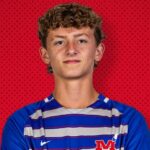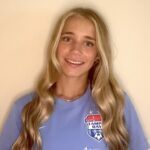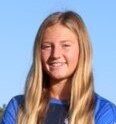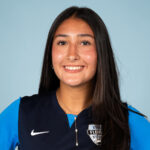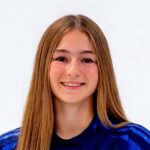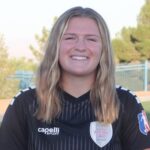TSW Q&A (Part 1 of 2): Exec. director Gordon Jago talks past, present, future of Dallas Cup
By Charles Boehm
The Dallas Cup has grown into one of the premier youth soccer tournaments in the world since its founding 33 years ago. Of course, such longevity, impressive as it is, hardly holds a candle to Gordon Jago, the 79-year-old legend who has overseen the tournament for the past nine years, capping a sterling career as a player, coach and executive in both Great Britain and the United States that was recognized with the honor of knighthood at an audience with Queen Elizabeth II six years ago.
His diverse resume includes a playing career spent mainly at Charlton Athletic, management of top London clubs Millwall and Queens Park Rangers, the Baltimore Bays and Tampa Bay Rowdies of the NASL, indoor soccer’s Dallas Sidekicks and even two games in charge of the U.S. Men’s National Team in 1969.
Jago has been building successful teams and spreading the gospel of the beautiful game for longer than most of us have been alive. And he’s slowed down only slightly since his retirement, helping to maintain and grow the Dallas Cup’s reputation and success – efforts that prompted his colleagues to name the tournament’s famous Super Group (composed of under-19 teams from top professional clubs) after him. Though he’s stepping down from his current position on June 1, he plans to continue contributing in a kind of “emeritus” role that will see him line up international participants and search out sponsors.
On the eve of this year’s edition, which kicked off on Sunday and continues through the weekend, Jago graciously took part in a lengthy phone conversation with The Soccer Wire, discussing the immense process of identifying and hosting Dallas Cup participants, planning and executing the event – and its role in moving American soccer forward.
The Soccer Wire: Thanks so much for your time, Mr. Jago. How have the preparations for the 2012 Dallas Cup gone? How does the Super Group look this year?
Gordon Jago: Very well indeed. At this late stage you get a little bit scared that somebody has a visa problem or someone has a flight problem, but so far nobody’s going wrong in that direction…The Super Group, we’ve restricted it to 12 teams this year. We’ve been having 16 in recent years, because we’re very fortunate that it’s very popular, and we have a lot of top teams that want to come.
But we can’t have a quarterfinal, because it’s too many games. You have to go through five as it is, if you get to the final. So we go straight from the qualifying groups into the four semifinalists. When we had 16, what we found was that if you lose the first game, you’re almost out, so a lot of the games on the final qualifying day, on the Wednesday, were not of any value or importance. So we’ve gone back to 12 and we’re happy with that. They’re from a great variety of countries: Bolivia, Brazil, Costa Rica, England, Germany, Japan, Mexico, and the USA. So it’s a very well represented SuperGroup for this year, and it’s probably one of the strongest that we’ve ever had.
TSW: Where do the teams in the other brackets come from?
GJ: We restrict the [overall Dallas Cup] entry to 180. We’re happy with that number, we feel that’s the right number for us. It balances out with 56 international teams, 93 from the USA, and 31 from North Texas.
The most important thing is, [if local teams] win their [North Texas] Classic league, they qualify. The key factor is that we need home stays because of those international teams; 33 of those 56 teams requested a home stay. So we put a foreign team with a local team in their same age group. So if we’ve got an Under-13 team from Germany or England coming in, they go and stay with a local Texas team that’s in the tournament. And we try and keep them away from each other [in scheduling matchups] so that if they’re going to meet, they meet in the last game, the final.
The homestays are a very unique program and that is what enables us to bring in as many teams internationally as we do. Because it saves them on cost. Then we help the coaches and officials with hotel accommodation, and in some instances depending on who the club is, we’ll also help with vans and transportation. But homestays are the key.
TSW: Many future superstars from around the world have participated in past editions of the Dallas Cup, and it seems to make a memorable impression on them.
GJ: When we look at the alumni list, it is incredible. You go all the way back to Michael Owen, who was here when he was 12. David Beckham, who was here when he was 15, with Essex Schools. Wayne Rooney came later, when he was on an Under-14 Everton team. Robinho came with Santos of Brazil. [Javier] “Chicharito” Hernandez, who came with Chivas [Guadalajara] Under-16s. So it goes on and on. There’s an unbelievable list of alumni.
And then what we’re seeing is a new group – for example, there’s [Martin] Kelly and [Jay] Spearing, who’ve now made the Liverpool first team. They were here three years ago. Jonny Evans, he was here with Manchester United. Giovanni dos Santos, he was here as a 12-year-old. We’ve seen [Tom] Cleverly, he was here with Manchester United’s junior team. So we’re seeing a kind of brand new group of upcoming stars. Then when you go all the way back, Raul Gonzalez, Peter Crouch, Landon Donovan, Clint Dempsey, Brian McBride, Maurice Edu, Tab Ramos…It’s an incredible list of young players who’ve come through and become world stars that we’re very proud of.
TSW: What other aspects of the event stand out in your mind?
GJ: We have very good refereeing. We have 29 FIFA referees who have refereed in the World Cup finals. There were seven of 32 in South Africa two years ago in the World Cup finals. who had refereed in the Dallas Cup. So that’s a very important aspect for us, because the quality of the referees is so high. We also have four referees per game. I don’t know of any other youth tournament that has a fourth official.
So the respect that the white badge of FIFA earns with the players – when they look at the referee and see that white badge, they know they’ve got somebody who’s pretty good out there, and I don’t think there are too many arguments!
TSW: The Dallas Cup is one of the most selective tournaments around. How do you go about deciding who gets in? Where do the teams come from?
GJ: Without a doubt, that’s our biggest problem, is to select which teams. For example, we’ll get seven really good teams out of southern Cal[ifornia] in an age bracket. Well, we can’t take all seven, they’ll be playing each other. So they say, ‘Why would we go all the way to Dallas when we can play each other at home?’ We may take three of that seven, and the problem for us is, how do we select those three?
We have a group of people around the country who keep us up to date – in other words, we have four people in southern Cal who we will contact, give them this list of teams, and say, ‘Will you rate them [on a scale of] 1 through 7?’ So we have four people who are not aware of each other and therefore we get four different opinions. That will help us with our selection.
Throughout the United States we’ve built a network of coaches who have been to the Dallas Cup, or college coaches that we know and respect. They help us with the up-to-date information on teams in their area. Overseas, we rely a great deal on contacts that we’ve built up.


